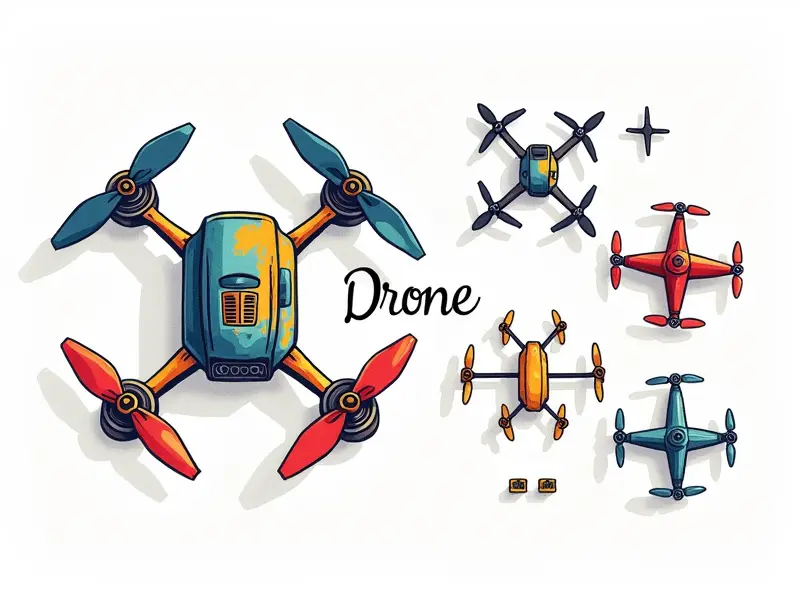Is Li-Po the same as Li-ion?

Are Li-Po and Li-Ion Batteries Interchangeable?
The question of whether Lithium Polymer (Li-Po) batteries can be used interchangeably with Lithium Ion (Li-Ion) batteries is a common one among RC enthusiasts. While both types are similar in their chemical composition, they have distinct differences that affect their performance and suitability for specific applications.
What's the Difference Between Li-Po and Li-Ion?
Lithium Polymer (Li-Po) and Lithium Ion (Li-Ion) batteries share a common base technology but differ in several key aspects. Li-Po batteries are constructed with thin, flexible polymer sheets that contain electrolyte gel, allowing for more compact designs and higher energy density compared to traditional cylindrical cells used in Li-Ion batteries.
Li-Po batteries also offer better discharge rates, making them ideal for high-power applications such as RC drones. On the other hand, Li-Ion batteries are typically found in consumer electronics due to their robustness and lower cost.
Can You Use Li-Ion in Place of Li-Po?
While it might seem tempting to use a Li-Ion battery instead of a Li-Po one for your RC drone, this is generally not recommended. The higher discharge rates required by drones are better suited to the capabilities of Li-Po batteries. Using a Li-Ion battery could result in reduced performance and potentially damage the equipment.
Li-Po vs. Li-Ion: Which is Better for RC Drones?
For RC enthusiasts, especially those involved with drones, Li-Po batteries are typically the preferred choice due to their high discharge rates and lightweight construction. These features make them ideal for powering motors that require bursts of power during takeoff and maneuvering.
Why RC Enthusiasts Prefer Li-Po Over Li-Ion
- Better Discharge Rates: Li-Po batteries can deliver high currents, essential for the rapid acceleration needed in drones.
- Lightweight Design: The flexible polymer construction of Li-Po batteries allows them to be lighter and more compact than traditional cylindrical cells.
Exploring the Pros and Cons of Li-Po vs. Li-Ion
Both battery types have their advantages and disadvantages, which should be considered when choosing between them:
Pros of Li-Po Batteries
- High Discharge Rates: Ideal for high-power applications like RC drones.
- Lightweight Construction: Allows for better performance in weight-sensitive devices.
Cons of Li-Po Batteries
- Voltage Sag: Can experience a significant drop in voltage under heavy load conditions.
- Safety Concerns: Require careful handling and charging to avoid risks like swelling or fire.
Pros of Li-Ion Batteries
- Durability: More robust construction compared to Li-Po batteries.
- Cheaper Cost: Generally less expensive than equivalent capacity Li-Po batteries.
Cons of Li-Ion Batteries
- Limited Discharge Rates: Not suitable for high-power applications requiring rapid discharge rates.
- Bulkier Design: Larger and heavier than equivalent capacity Li-Po batteries.
Do RC Helicopters Need Special Li-Po Batteries?
RC helicopters, like other RC vehicles, benefit from the high discharge rates provided by Li-Po batteries. However, it's important to select a battery with sufficient power and capacity to meet the specific requirements of your helicopter model.
Is Li-Po the Same as Lithium Ion Battery?
No, while both are lithium-based technologies, they differ in their construction and performance characteristics. Li-Po batteries use polymer sheets containing electrolyte gel, whereas Li-Ion batteries typically consist of cylindrical cells filled with liquid electrolytes.
Why Choose Li-Po Over Li-Ion for FPV Racing Drones?
The high discharge rates and lightweight design of Li-Po batteries make them the preferred choice for FPV racing drones. These features ensure optimal performance during rapid acceleration, maneuvering, and prolonged flight times.
Can I Use Any Li-Ion Battery in My RC Airplane?
Using a standard Li-Ion battery in an RC airplane is not advisable due to the higher discharge rates required for efficient operation. A dedicated Li-Po battery designed for high-power applications will provide better performance and reliability.
Understanding the Key Differences Between Li-Po & Li-Ion
The primary differences between Li-Po and Li-Ion batteries lie in their construction, discharge capabilities, and suitability for various applications. While both offer advantages, choosing the right battery depends on your specific needs and requirements.
Conclusion
In summary, while Lithium Polymer (Li-Po) and Lithium Ion (Li-Ion) batteries share similarities in their chemical composition, they differ significantly in terms of construction, performance characteristics, and suitability for different applications. For RC enthusiasts, especially those involved with drones or other high-power devices, Li-Po batteries are generally the better choice due to their superior discharge rates and lightweight design.

